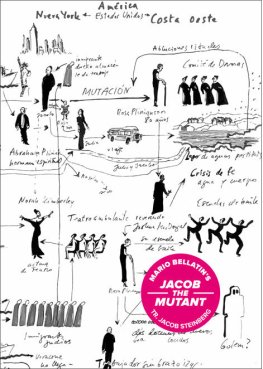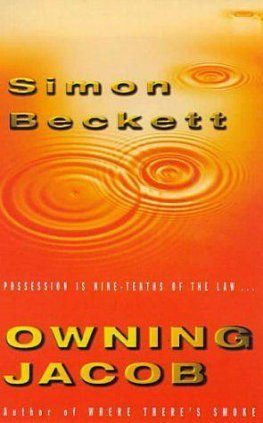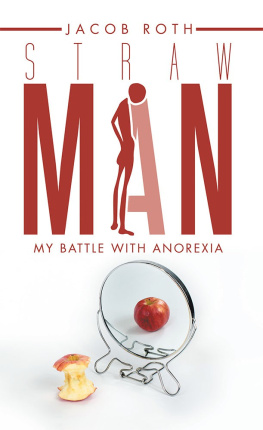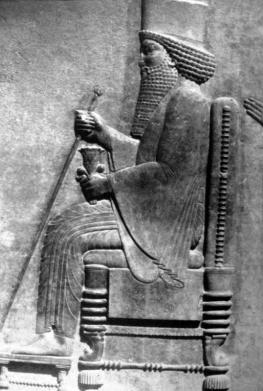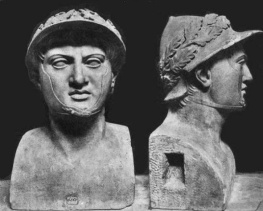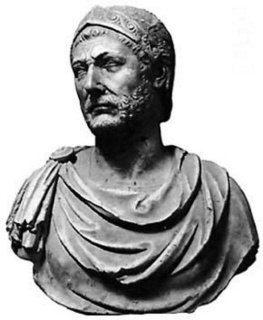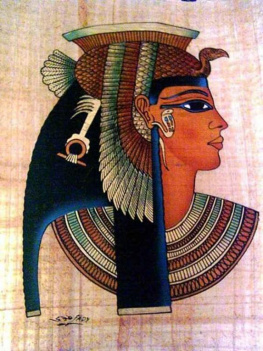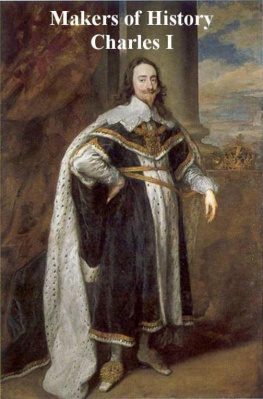Mario Bellatin - Jacob the Mutant
Here you can read online Mario Bellatin - Jacob the Mutant full text of the book (entire story) in english for free. Download pdf and epub, get meaning, cover and reviews about this ebook. year: 2015, publisher: Phoneme Media, genre: Prose. Description of the work, (preface) as well as reviews are available. Best literature library LitArk.com created for fans of good reading and offers a wide selection of genres:
Romance novel
Science fiction
Adventure
Detective
Science
History
Home and family
Prose
Art
Politics
Computer
Non-fiction
Religion
Business
Children
Humor
Choose a favorite category and find really read worthwhile books. Enjoy immersion in the world of imagination, feel the emotions of the characters or learn something new for yourself, make an fascinating discovery.
- Book:Jacob the Mutant
- Author:
- Publisher:Phoneme Media
- Genre:
- Year:2015
- Rating:3 / 5
- Favourites:Add to favourites
- Your mark:
- 60
- 1
- 2
- 3
- 4
- 5
Jacob the Mutant: summary, description and annotation
We offer to read an annotation, description, summary or preface (depends on what the author of the book "Jacob the Mutant" wrote himself). If you haven't found the necessary information about the book — write in the comments, we will try to find it.
Jacob the Mutant — read online for free the complete book (whole text) full work
Below is the text of the book, divided by pages. System saving the place of the last page read, allows you to conveniently read the book "Jacob the Mutant" online for free, without having to search again every time where you left off. Put a bookmark, and you can go to the page where you finished reading at any time.
Font size:
Interval:
Bookmark:
Mario Bellatin
Jacob the Mutant
The Wait
The forms remained in suspense. The mens skin perpetually wet. A golem. A dozen boiled eggs. No mutation was produced. All that appeared was the image of some sheep grazing among rocks.
The Border
Jacob Pliniak is presented to the reader as one of the simplest beings in the world. Considered a rabbi in his small community, he dedicates a good part of his day to teaching Scripture to the village families children. He is married to Julia and together they own a tavern called The Border. The young Anselm helps them with their tasks. The days are hectic. Jacob Pliniak rises at dawn. Following the ritual prayers, and his baths fully clothed and with cold water, as if a personal penance he awaits the arrival of his pupils, who enter the shed out back in silence. Just shortly prior, the bustle in the tavern has come to a close. Many of those present soldiers and peasants in flight, or women, for the most part, of unknown origin sleep among the tables, a sleep provoked by the excesses of the night. Julia and the young Anselm have managed the tavern until early morning. Theyve been attentive to the guests all the while trying their best not to meddle with their conduct. Julia has gone to sleep at daybreak, in the bed that Jacob Pliniak has just left. The wife will not get up until noontime. Before drifting to sleep, making out the sounds of Jacob Pliniaks bath, Julia tends to wonder about that very peculiar way in which her husband does penance. She likewise asks herself why he has never been taken for a legitimate rabbi. In reality, he was not a rabbi in the full sense of the word. If he were, his wife would not be allowed to manage the tavern, even less so until the early morning hours. The Border was perhaps one of the least known works of the Austrian writer Joseph Roth. A complete translation has yet to surface, although fragments have shown up, like the lines offered above, in specialty magazines in Paris and on the West Coast of the States. The Stroemfeld publishing house in Frankfurt holds an old edition in its archives that is believed to be complete, while the independent publishing house Kiepenheuer & Witsch has another version that, many hold, is just composed of a series of fragments. Nobody knows why, but to this day neither of the two has been published. Many exegetes assert that a more thorough investigation has yet to be carried out, one that would allow the compilation of the immense quantity of papers dispersed about that are thought to compose the book in its totality. It is not known what Joseph Roth thought of this novel. Given that he never finished it, he did not live to see it published. One of the women who accompanied him in his final years an English investigator based out of Paris insists that the writer never parted from the text, and that he always went about writing it in a state of complete inebriation. In some way, it seems to be the novel whose editing he reserved for those moments when he was intoxicated. It is a curious fact that, according to the testimony of that very investigator, when he was creating The Legend of the Holy Drinker and other texts directly related to alcohol, he would not allow even a pint of beer in his presence while he wrote. That is why this text, The Border, may be considered a type of treatise created through the authors unconscious. There is nobody in the small county of Korsiakov who does not know Jacob Pliniaks tavern, says one of the books beginnings. They all know that, through its only window, it is possible to take in the panorama that spans from the town center, with the towers of that strange, mysterious castle in the background, to the small hut that serves as a border marker. On summer days, as in winter, one can see the hut lit up at night with a faint yellow light a light that constantly seems to grow closer and then distant transforming the border into a point of deceptive existence, the author indicates in another of the texts openings. Both beginnings seem to have been written during Joseph Roths younger years, when he hadnt yet abandoned his native Galicia. Nevertheless, it would be hasty to consider this text a developmental work, given that, in a certain way, the same narrative lines found in this novel mark his later works as well. There is also the fact that it is a text that the author never stopped writing. For some, Jacob Pliniaks plot takes on an exceedingly basic tone. They think it merely has to do with the story of a shopkeeper, the owner of a border town tavern. The tavern, in reality, is only a cover for an escape route for scores of Jews fleeing the Russian pogroms. Those readers dont seem to pay heed to the adventures that Jacob Pliniak will take part in years later in America, at which point he will even transform into an elderly woman: the pious Rose Plinianson. But getting back to the beginnings, the calm in Jacob Pliniaks life represented mainly by the religion classes he holds for the children in the region and his weekly incursions to a certain spot on the border to help his religious companions across is visibly altered (in a definitive way, as will be seen later) when he discovers that Julia, his wife, is the young Anselms lover. Moreover, the two of them have planned to run away together. When Jacob Pliniak finds out about the incident, guided by the paths left deliberately by his own wife, he feigns ignorance of the relationship. He remains silent, and every morning he faces the breakfast his wife prepares for him before she heads off to sleep alone. A cup of borscht on the table and a teapot placed on the stove is what Jacob Pliniak is accustomed to finding day after day upon waking. On certain occasions he also finds a sandwich made with smoked herring, surely brought from the Baltic the night before by some traveler. Joseph Roth, in his role as creator, goes about pointing out different realities as he proceeds forward with his writing. Perhaps this task is most clearly seen in The Border. That could possibly be the reason why it is one of the authors most cryptic and structurally complex works. Maybe that is also why the character, Jacob Pliniak, who in the middle of the narrative transforms into a woman like in Virginia Woolfs Orlando, is one of the most curious characters in literary history. There is no doubt that he is, at the very least, the strangest character thought up by our author. Some believe that he is a character who is not entirely complete that he more so served the author as an inspiration for the construction of other, more complete heroes like the memorable Isaac in Job, the shopkeeper Nissen in The Leviathan, or the inspector Anschelbum, famous for his zeal in controlling the regions weights and measures. Others think that he is, definitively, an innovation of what was traditionally known as a character. This appreciation can be taken on more clearly by seeing how Jacob Pliniak manages to get the Russian Jews from one side of the border to the other. Thursday is set aside for bringing the exodus to fruition. On those days he does not wait for the students arrival at his house for study. The people in the surrounding areas know that, apart from the traditional Sabbath, Thursdays have also been set aside as a type of holy day. At dusk Jacob Pliniak makes his way to a point on the border that no one else knows, situated at the ford of a less-than-plentiful river, where he crosses without removing his clothes. The issue of the waters and the clothing forms a part of his personal ritual. According to Jacob Pliniak, each time that somebody bathes with clothes on he is repeating his communion with God. It is not common that someone considered the rabbi of his community be afforded this time for personal interpretations. No less, Jacob Pliniaks behavior is full of actions that, in some way, contradict the Scriptures. He then walks a half an hour to the house of his accomplice, known as the mysterious Macaque, the very one who years later, in New York City, would become the stage actress Norah Kimberley. He returns at midnight, bringing behind him a line of immigrants. Macaque has paid him his share of the money, that those men have given over for his assistance in their escape from the country, in rubles. The following day it will have to be Julia, Jacob Pliniaks wife, who exchanges them in a grains shop where the owners speculate as to fluctuations in the coins of both regions. The immigrants stay hidden for two nights in the tavern. On Saturday morning, the group of refugees is brought up, stealthily, to a wagon driven by a lanky man. In those moments, Jacob Pliniak abandons his prayer room, situated a few yards from the tavern, and goes out to wish the unfortunate luck on their voyage. One of the most surprising discoveries for literature, not just for that of Joseph Roth but for all of twentieth-century literature, seems to be in the mechanism for how a role assigned to a particular character drifts, quite suddenly, into another, completely different one. Precisely when the reader assumes, quite plausibly, not just Jacob Pliniaks presence in the text but, especially, his right to remain in its structure, our character transforms, with no great leap, into his supposed adopted daughter, Rose Plinianson, the highest authority of the womens committee in the town where she lives. It all begins when, without any interruption, at a certain point in the plot, Jacob Pliniak finds himself living in America. He discovers himself in New York City, investigating the whereabouts of the actress Norah Kimberley, well known for her work in the traveling theater groups of the time. Jacob works in a store that markets goods, whose owner is one of the men that he helped cross the border years back. Jacob Pliniak is grateful to God that his ship was the last one able to enter the country without an entry visa required of its passengers. During the voyage, which was on the verge of ending in tragedy when, midway across the ocean, the navigation instruments on the ship broke, he became a spiritual brother to a boy named Abraham. That boy, whose origin lay in the Caucasus region, had witnessed, while hidden among rocks where he usually grazed his sheep, his village being burned down, with its inhabitants enclosed in the small synagogue. The presence in this passage, not only of this spiritual brother, Abraham, but also of the sheep, and above all, the fact that they grazed in a rocky place, stands out. It is apparent that in this part of the story, Joseph Roth is highlighting, in a direct way, the works mystical nature. Nevertheless, it does not cease to be strange that, during his ships passage through danger, there is no mention made of any fear of the Leviathan, that deep sea monster present in the majority of tales of this nature. Despite all else, the reference to the rocky place and the sheep is an element that cannot go unnoticed. Two years after his arrival, on one of the busiest streets, Jacob Pliniak stumbles not upon Norah Kimberley, but rather Julia, his old wife. The young Anselm has left her and she has a daughter named Rose. The woman carries out small tasks for community members, but essentially lives off public charity. Jacob takes pity on her. He suggests that they travel to the West Coast together. That is where Abraham Pliniak is living, his spiritual brother, who more than once has sent a letter begging for a reunion. In a very short time, Abraham had managed to amass a small fortune buying land from the few colonists left in the region. He then sold it to a group of refugees seeking a permanent place to settle down and live. Finding his old wife in those conditions seemed to be the sign for Jacob Pliniak to set out on the trip that his brother begged of him. He felt as if he were being given a second chance. He saw in Julia the possibility of having many children something he had not been able to accomplish in his homeland, mainly due to the constant worry over Russian pogroms. He wanted children capable of passing his spiritual legacy along to future generations. He was even willing to accept Rose as his own daughter. Without thinking twice, he quit his job, picked up Julia and his daughter from the miserable room where they lived, and made the long journey by bus. Abraham Pliniak (nobody knows the reason why, when they became brothers on the ship, he took on Jacobs surname, instead of his family, murdered in the village synagogue) designated a parcel of land to them on the shores of a lake. He then helped them raise a house. Initially, Jacob Pliniak thought of starting up a similar business, a tavern, like the one he had had in Korsiakov. He would rely on his wife Julia, who could help him with administration. They could, by the same token, appeal to a young man with no work, whom they would seek out among the children of the immigrant families, to collaborate. Jacob Pliniak seemed to want, once again, to wake up each day right when his wife, exhausted, sought rest. To find, just as before, his bowl of borscht placed on the stove. Although he would have liked to set up a business that only operated at night, having a tavern again didnt seem like a good idea after all. It would be like returning to the past. He left these plans behind. He was content with the task of spreading the ideas found in the sacred texts. Jacob Pliniak became a teacher once again, very close to what could be considered a rabbi. He once again was close to children. He enjoyed going over, as if for the first time, the most suggestive passages of the Torah and Zohar. This, in turn, reinforced his desire to have children. At this point in the novel, a phrase appears that could be interesting in the context of understanding the authors idea for taking on such a writing exercise. It asserts that, when Jacob Pliniak found out that he would once again interpret the sacred books for the communitys children, he said, to himself, that the letters and names are not just conventional means of communication. He asserted, rather, that they are actually the means by which faith carries out its own annihilation. It is precisely at this point, when Jacob Pliniak has uttered such a sentence, that we discover in the text that his work as a rabbi does not endure any great length of time. Nor does his interest in having children, one after another. Many of the families rooted in the region have begun to abandon their ancient beliefs. They have begun to try and forget the religion of their ancestors. At this moment Jacob Pliniak faces perhaps his lifes most important crisis of faith. Unfortunately it is not possible to compare the passages of this book,
Font size:
Interval:
Bookmark:
Similar books «Jacob the Mutant»
Look at similar books to Jacob the Mutant. We have selected literature similar in name and meaning in the hope of providing readers with more options to find new, interesting, not yet read works.
Discussion, reviews of the book Jacob the Mutant and just readers' own opinions. Leave your comments, write what you think about the work, its meaning or the main characters. Specify what exactly you liked and what you didn't like, and why you think so.

